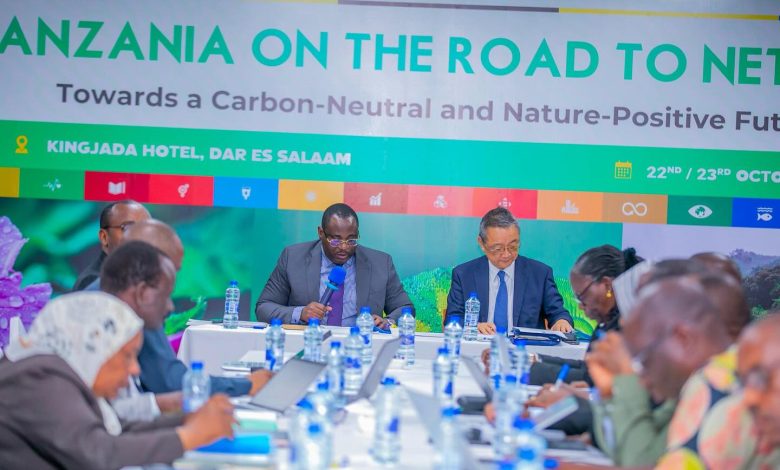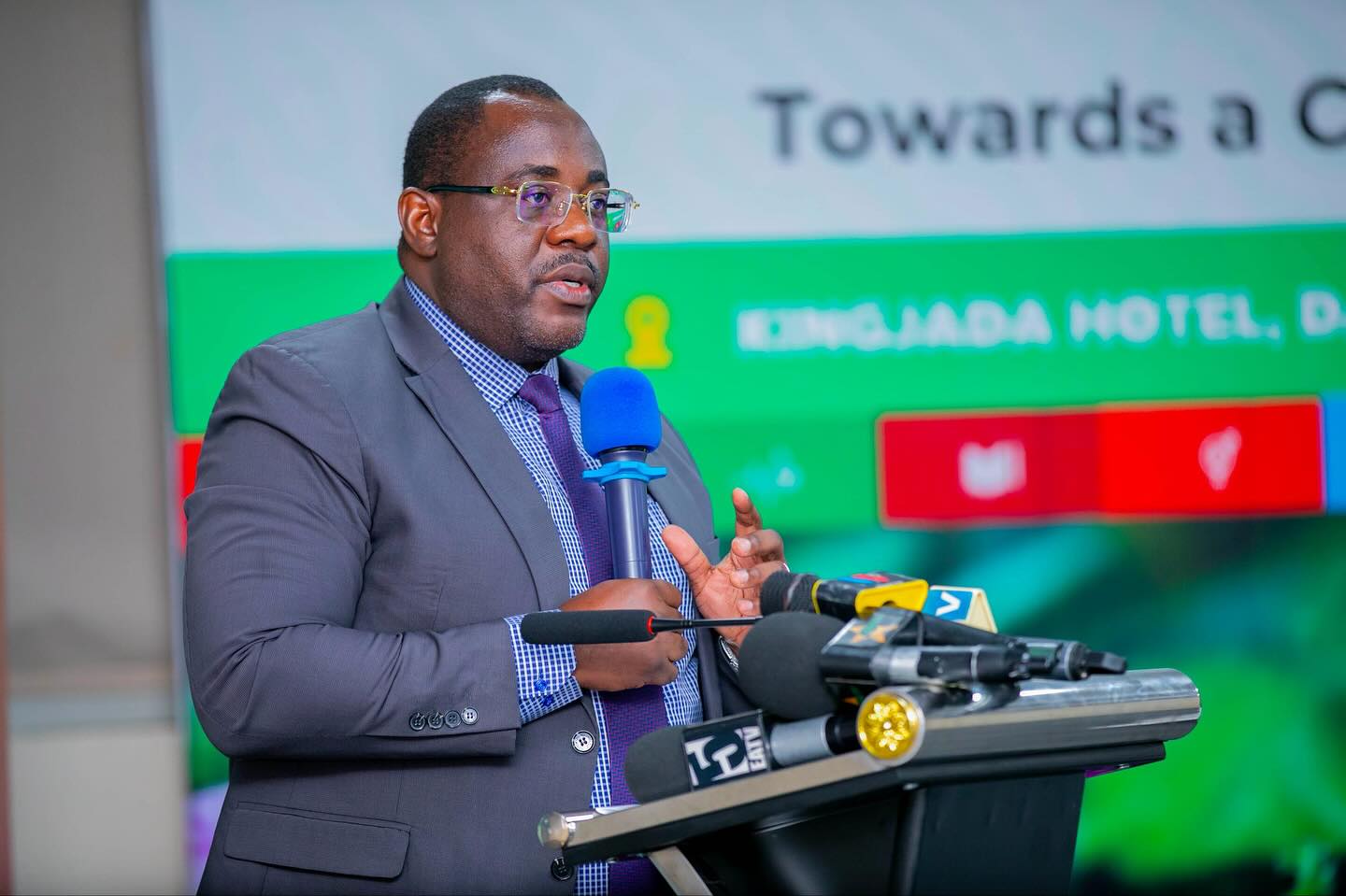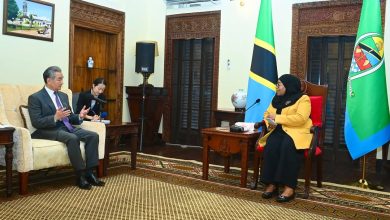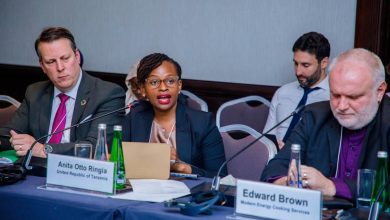Tanzania embarks on a major climate and biodiversity project to tackle global environmental challenges

DAR ES SALAAM: TANZANIA has taken another significant step in its environmental conservation journey with the launch of a new project designed to address the pressing issues of climate change and biodiversity loss.
The initiative, valued at 94bn/- marks a critical milestone in the country’s commitment to sustainable development and its recognition on the global stage as a leader in conservation and green growth.
The project titled “Positive and Inclusive Approaches to Address Climate Change and Protect Biodiversity” is being implemented through a partnership between the government, the United Nations Development Programme (UNDP) and the Global Environment Facility (GEF).
It aims to reduce greenhouse gas emissions, enhance ecosystem resilience and promote inclusive community participation in conservation and climate adaptation efforts.
Climate change continues to pose severe challenges to Tanzania’s environment and economy. Rising temperatures, unpredictable rainfall patterns and the loss of forest cover have impacted key sectors, including agriculture, energy and water.
The new project, therefore, represents a timely and strategic response that integrates both mitigation and adaptation approaches.
According to the Permanent Secretary in the Ministry of Natural Resources and Tourism, Dr Hassan Abbasi, the project underscores the government’s commitment to implementing internationally recognised policies that address climate change and biodiversity protection.

“This project is significant because it demonstrates that our national policies for addressing various environmental challenges are recognised globally. These kinds of projects are few worldwide and are highly competitive to secure implementation funding,” said Dr Abbasi during the inaugural meeting of the project’s steering committee held in Dodoma on Thursday.
Dr Abbasi said that Tanzania’s environmental vision aligns with global frameworks such as the Paris Agreement, the Kunming Montreal Global Biodiversity Framework and the Sustainable Development Goals (SDGs), particularly Goal 13 on climate action and Goal 15 on life on land.
The first phase of the five-year project (2025–2030) will be implemented in the Tanga and Kilimanjaro regions, covering key forest reserves including Amani, Magamba, Nilo and Chome.
These areas are recognised as biodiversity hotspots, hosting a wide range of endemic species and serving as vital water catchment zones that supply rivers and communities downstream.
Dr Abbasi highlighted that over 40 per cent of Tanzania’s total land area is under forest and wildlife protection, positioning the country among the global leaders in natural resource conservation.
“Our forest and wildlife protection efforts have not only conserved biodiversity but also contributed significantly to economic development. For instance, the number of tourists visiting forest reserves has increased from 59,000 in 2020/21 to 346,000 in 2024/25, while revenue rose from 154m/- to 2.8bn/-,” he said.
He added that the project will further strengthen the Tanzania Forest Services (TFS) in its efforts to enhance community-based forest management, promote clean energy technologies and ensure that conservation also benefits local livelihoods.
Speaking during the launch, TFS Conservation Commissioner Professor Dos Santos Silayo said the project aims to foster innovation and investment in green technologies that will help Tanzania transition towards a low-carbon economy.
“This five-year initiative will promote the use of clean cooking energy, electric transportation and green investments in forest reserves across the country. It is designed to build on the achievements of our national climate policies while empowering communities to play a leading role in environmental stewardship,” said Prof Silayo.
Currently, Tanzania faces challenges related to deforestation and the overreliance on charcoal and firewood for cooking energy.
According to data from the Ministry of Energy, more than 80 per cent of households still depend on biomass energy, contributing to forest degradation and carbon emissions.
The introduction of clean cooking alternatives through this project is expected to significantly reduce deforestation rates and improve public health outcomes, particularly for women and children who are most affected by indoor air pollution.
The project’s financial structure reflects a strong collaboration between national and international partners. The Global Environment Facility (GEF) has provided 4.7 million US dollars, while UNDP has contributed 200,000 US dollars. The Tanzanian government and other partners are collectively investing more than 29 million US dollars through complementary conservation and clean energy programmes.
ALSO READ: Govt reaffirms partnership with stakeholders to tackle climate change impacts
UNDP Resident Representative in Tanzania, Shigeki Komatsubara, commended the government’s proactive stance and leadership in advancing the green economy and sustainable resource management.
“Tanzania has become a model in implementing Net-Zero and NaturePositive projects. Our partnership with the government focuses on forest protection, strengthening clean energy initiatives and improving the livelihoods of citizens,” said Mr Komatsubara.

He further noted that UNDP’s collaboration with Tanzania extends beyond environmental projects to include policy advisory support, digital innovation and capacity building for climate-resilient development. The project is expected to bring multiple benefits beyond environmental protection. It will create green jobs, promote sustainable tourism and strengthen climate resilience among rural communities.
Through training and local engagement, farmers and forest-dependent populations will gain new skills in sustainable land use, agroforestry and renewable energy practices.
Furthermore, it aligns with Tanzania’s Nationally Determined Contributions (NDCs), which target the reduction of greenhouse gas emissions by up to 30 per cent by 2030 through reforestation, renewable energy and sustainable agriculture.
Environmental analysts believe the project could serve as a model for other African countries seeking to balance development with conservation.
By integrating inclusive community participation, the initiative ensures that women, youth and vulnerable groups have an active role in decision-making and benefit-sharing.
The launch of the Positive and Inclusive Approaches to Address Climate Change and Protect Biodiversity project marks a pivotal moment for Tanzania’s environmental agenda.
With its ambitious goals, strong partnerships and community-focused strategies, the project stands as a testament to Tanzania’s dedication to protecting its natural heritage while embracing sustainable development.
As Dr Abbasi aptly put it, the project not only affirms the country’s global environmental leadership but also reinforces the government’s resolve to secure a greener and more resilient future for generations to come.






Am Environmental Expert from -Dar Es Salaam working in EACOP PROJECT as Environmental supervisor.
TANZANIA “Tanzania has become a model in implementing Net-Zero and Nature Positive projects. Our partnership with the government focuses on forest protection, strengthening clean energy initiatives and improving the livelihoods of citizens,”
It aims to reduce greenhouse gas emissions, enhance ecosystem resilience and promote inclusive community participation in conservation and climate adaptation efforts.
This is positive practice is to ensure environmental compliances for the sustainable development.
Hello Paul Rwezaula,
I am an Environmental Expert and GIS & Remote Sensing Analyst. I have applied for several positions at EACOP multiple times but have never had the chance to be invited for an interview. I know you have some connections there could you please guide or direct me on how I might improve my chances?
How can I get Job in this project to ensure Environmental & Biodiversity conservation
Hello Mr. Rwezaula
I am a licensed and experienced drone pilot in tanzania working with Survey drones, surveillance and agricultural drones. Drones have improved their capabilities in capturing real time data and provide great insight about what is the Forestry looking and these insights can be used to come up with the best ideas to combat challenges that face climate and biodiversity.
I would love to be part of this project and bring in my experience and expertise in bringing solutions.